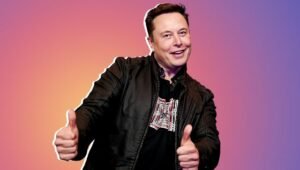Over the weekend, Tesla, led by CEO Elon Musk, took a rather drastic step and reduced the prices of its entire portfolio of vehicles in critical markets like China, Europe, and the US. This decision to slash prices comes at a time when Tesla’s sales have dwindled, and they are left holding a lot of inventory. The discounts are seen as a desperate move to stimulate demand for their EVs and move inventory.

Over the weekend, Tesla also announced a massive price cut for its Full Self-Driving (FSD) software, dropping it by over 33 percent to $8,000 in the US. The company’s commitment to developing fully autonomous vehicles has been central to its valuation.
Tesla has also promised to launch a dedicated robotaxi on August 8th.
Customers purchasing new vehicles will receive a complimentary 30-day trial of the FSD software. However, Tesla clarifies that the current features necessitate active driver supervision and do not render the car fully autonomous.
In China, prices were slashed across Tesla’s model range. The revamped Model 3 is now priced at 231,900 yuan ($32,000), down from 245,900 yuan previously. Similarly, the Model Y received a discount, dropping to 249,900 yuan, approximately $34,500, from 263,900 yuan.
The entry-level Model Y in the US starts at $42,990, returning to its lowest price point. Tesla also reduced prices for higher-end versions of the Model Y by $2,000 and set the cost of the Model X at its lowest level yet.
These price adjustments came at the end of a tumultuous week for the Austin-based automaker, marked by CEO Elon Musk’s announcement of a global workforce reduction exceeding 10% and the departure of two top executives.
Despite these challenges, Tesla remains committed to innovation and growth in the electric vehicle market. The price cuts reflect the company’s efforts to adapt to market dynamics, address inventory concerns, and maintain competitiveness in critical regions.
In China, prices were slashed across Tesla’s model range. The Model 3 now costs 231,900 yuan ($32,000), down from 245,900 yuan.
Similarly, the Model Y received a discount, dropping to 249,900 yuan, approximately $34,500, from 263,900 yuan.
These price cuts followed CEO Elon Musk’s announcement of a global workforce reduction exceeding 10 percent and the departure of two top executives, marking a turbulent period for the company. Despite these setbacks, Tesla remains steadfast in its commitment to innovation and growth in the electric vehicle market.
In addition to the pricing adjustments, Tesla faced further challenges during the week. It announced plans to seek shareholder approval again for a $56 billion compensation package for Musk, invalidated by a Delaware court earlier in the year. Moreover, the company issued a recall for nearly 3,900 Cybertruck pickups due to accelerator pedal issues that could lead to unintended acceleration and pose a safety risk.
Despite these hurdles, Tesla continues to navigate the evolving landscape of the automotive industry, striving to adapt to market dynamics, address concerns, and maintain competitiveness in critical regions.
Tesla is facing many challenges. First, the company announced that it will seek shareholder approval again for a $56 billion compensation package for CEO Elon Musk. This decision came after a Delaware court invalidated the package earlier in the year.
Furthermore, last week, Tesla issued a recall for nearly 3,900 Cybertruck pickups due to issues with its accelerator pedal. The EV was experiencing unintended acceleration, which could have been fatal for drivers, passengers, and road users.
In addition to these internal matters, Elon Musk postponed a planned trip to India, where he was scheduled to meet with Prime Minister Narendra Modi. Musk cited “heavy obligations” at Tesla as the reason for the delay, indicating the company’s focus on addressing its current challenges.
The company’s stock has declined over 40 percent this year. This is of significant concern since sales have slumped in a market with increased competition, especially from China.
During the first quarter, Tesla reported its first year-over-year sales drop since the early days of the pandemic, delivering 386,810 vehicles, which fell short of analyst estimates.
In China, Tesla’s market share declined to around 6.7 percent in the fourth quarter of 2023, down from 10.5 percent in the first three months of the year, according to Bloomberg calculations based on data from China’s Passenger Car Association.










